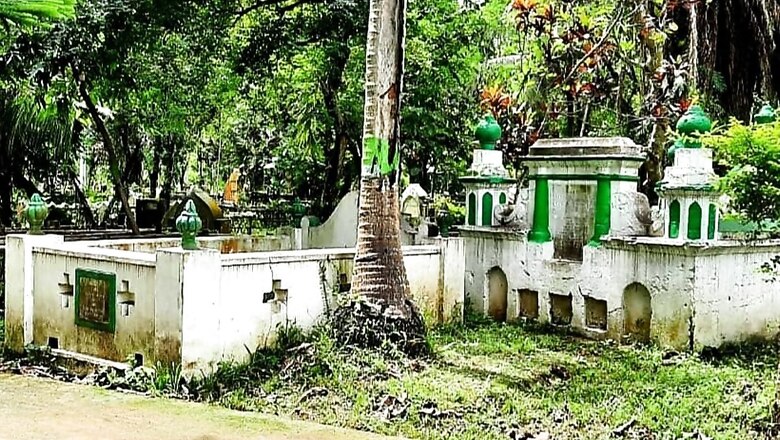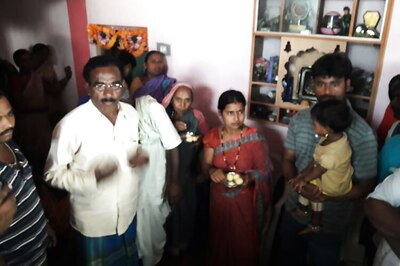
views
For the family of Aelopshi Jamir, options for his burial following his death due to Covid-19 on July 30 at a Guwahati hospital were limited. The Ao Baptist Church which operates from Panbazar does not have its graveyard in the city. Guwahati has four major cemeteries: the Guwahati Baptist Church, which is the oldest Baptist Church in the Northeast, the Catholic Church Don Bosco, the Christ Church and the Christian Basti Church.
Left with no other alternatives, Jamir's family approached the Athgaon Kabarsthan in Guwahati, the largest Muslim burial ground of the Northeast.
“Family members of the deceased came to us on the 30th and inquired whether the Athgaon Kabarsthan would allow the burial of Jamir. We had no issue but we sought a no-objection certificate from the district authorities and also from the pastor of the church which they are part of. We have been burying Covid-19 casualties from across the Northeast at Athgaon Kabarsthan, so it did not surprise us. The only thing was that it had to be official,” said Md Murtaza, secretary, Athgaon Kabarsthan.
“The bereaved family had a wish letter saying they were happy to perform the burial rituals in the Islamic way. While we buried Jamir, his wife and sons were there, though all Covid-19 safety protocols were observed,” added Murtaza.
The Jamir family that runs a business in Ulubari area of Guwahati and is a member of the Aao Baptist Church since 2011 refrained from speaking to News18 on the matter but mentioned that a no-objection certificate had been obtained.
“It is a welcome initiative by the Athgaon Kabarsthan Committee. Society needs such examples in this time of crisis. People should stand for the cause and society should act together," said Azizur Rehman, pastor of Guwahati Baptist Church.
Responding to a query on why Aelopshi Jamir did not find a space in the graveyard of the church, the pastor said, "Our cemetery at Nabagraha is almost full. Moreover, a few people of the community have bought a piece of land on the outskirts of Guwahati which is being used as a common graveyard of the community."
It needs mention that in the wake of coronavirus cases across Guwahati city, an important decision was taken by the Guwahati Kabrastan Committee that last rites of deceased will take place in their respective local cemeteries.
Spread over seventy bighas of land, the Athgaon Kabarsthan in the heart of Guwahati city is deemed the most beautiful and naturally blessed Muslim cemetery of the Northeast as well as the country. Since the beginning of the Covid-19 pandemic, 43 people who died because of the novel coronavirus have been buried in the 400-year-old resting place.
“The church possibly did not want Jamir, who died of Covid-19, to be buried in its graveyard. So the family had to look for other options and approach the deputy commissioner of Kamrup Metro,” added Murtaza.
The Athgaon Kabarsthan Masjid was declared a containment zone after it was found that a meeting held there on March 12 included 8 people who had also attended the Tablighi Jamaat event in Delhi. The meeting was attended by nearly 100 people and three of them have already tested positive for the coronavirus.
“It’s indeed a laudable gesture by the Kabarsthan Committee and Murtaza has been a driving force behind this. We need more actions like this from people in times of the pandemic,” said Zunaid Khalid, secretary, Kamrup Metro Jamiat.
A six-month-old Christian girl from Arunachal Pradesh who died of Covid-19 was also laid to rest in the cemetery. "We have ample space at our Kabarsthan and we are open for all,” said Murtaza.















Comments
0 comment